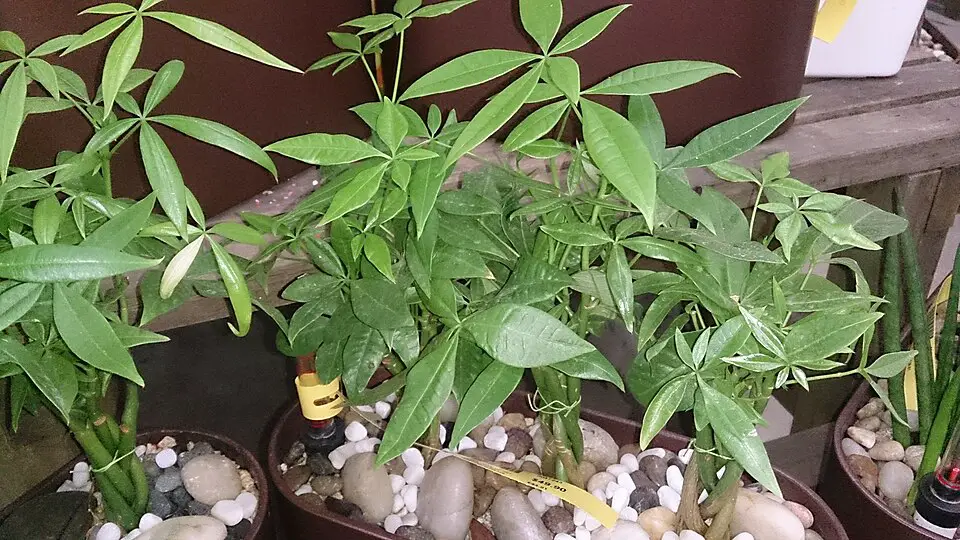Juniper berries can be expensive, with prices ranging from $10 to $30 or more per pound. The cost is influenced by factors like location, quality, and freshness.
The method of acquiring and harvesting juniper berries has a significant role in determining their price. Juniper berries are not frequently grown commercially, unlike many other fruits and spices. They are instead foraged from the wild, which entails picking the ripe berries by hand or by beating them off of the trees. The labor-intensive and labor-intensive manual harvesting method adds to the total cost.
Additionally, the source of juniper berries may have a big influence on how much they cost. In certain areas, juniper berry populations may be more numerous and affordable, but in others, access to these berries may be more restricted and more costly.
Another important factor in determining juniper berry cost is quality and freshness. Because of their outstanding flavor and quality, which often resemble the texture and sweetness of blueberries, fresh organic juniper berries are in great demand. This freshness costs a lot of money.
The uses of juniper berries go well beyond flavoring gin, too. Dry rubs, marinades, fermentation techniques, homemade bitters, and even traditional medicine employ them to support good digestion and skin. Prices for juniper berries may rise as a result of increased demand from these many sectors.
In certain instances, the costs of importing juniper berries from particular areas may exceed the revenue from sales, adding to their expense. This might be the reason certain stores may charge extra for juniper berries.
The Appeal Of Juniper Berries
Juniper berries are highly sought after, making them expensive. Their exclusivity stems from their unique flavor and medicinal properties, making them an appealing ingredient in the culinary and health industries.
Juniper berries may be small in size, but they pack a punch when it comes to their unique appeal. These berries have a rich and fascinating history, find their place in various culinary applications, and offer notable nutritional value. Let’s delve into each of these aspects in more detail.
Dcrjsr, CC BY 3.0, via Wikimedia CommonsHistorical Uses:
- For centuries, juniper berries have been valued for their medicinal properties and used in traditional herbal remedies.
- Ancient cultures, including the Egyptians and Greeks, utilized juniper berries for their antiseptic and diuretic properties.
- The Native Americans incorporated juniper berries into their rituals and believed in their healing powers.
- Juniper berries were popular among European herbalists during the Middle Ages for ailments such as digestive issues and respiratory problems.
Culinary Applications:
- The distinct flavor of juniper berries is a key ingredient in the production of gin, contributing to its characteristic taste and aroma.
- These berries are commonly used in marinades and rubs for meat dishes, providing a savory and slightly citrusy flavor.
- Juniper berries can be ground into a spice, adding depth to culinary creations such as sauces, soups, and stews.
- Certain varieties of cheese, particularly in Scandinavian cuisine, are seasoned with juniper berries to infuse a unique and aromatic taste.
Nutritional Value:
- Juniper berries are a good source of antioxidants, which help protect the body against cellular damage.
- They are rich in vitamin C, providing a boost to the immune system and aiding collagen production for healthy skin.
- Juniper berries contain essential oils that have anti-inflammatory and antimicrobial properties.
- These berries are also a good source of dietary fiber, aiding digestion and promoting a healthy gut.
The appeal of juniper berries lies in their rich history, versatile culinary applications, and notable nutritional value. Whether incorporated into traditional remedies, adding flavor to food and drinks, or offering health benefits, juniper berries hold a special place in various aspects of our lives.
Also Read : Juniper Spiritual Meaning: Unlocking the Mystical Powers Within
Factors Influencing Juniper Berry Prices
The price of juniper berries is influenced by several factors, making them relatively expensive. Factors such as scarcity, high demand, and the intricate harvesting process contribute to their elevated prices in the market.
Juniper berries, the aromatic fruits of the juniper tree, have gained popularity for their unique flavor and various health benefits. However, the hefty price tags attached to these small berries often leave consumers wondering: why are juniper berries so expensive?
Let’s explore the factors that contribute to the high prices of juniper berries.
Limited Supply And High Demand:
- The availability of juniper berries is relatively limited due to the specific conditions required for their growth. Here are some key points:
- Juniper trees primarily thrive in temperate regions such as the Mediterranean, North America, and parts of Asia. The limited geographical distribution restricts the potential quantity of juniper berries that can be harvested.
- The slow growth rate of juniper trees further hampers the supply of juniper berries. It takes several years for these trees to reach maturity and produce a substantial yield, resulting in a scarcity of berries in the market.
- Juniper berries are sought after not only for their culinary uses but also for their use in traditional medicine and the production of gin. As demand continues to rise, driven by both the food and pharmaceutical industries, the limited supply struggles to keep up.
Harvesting Challenges:
- The process of harvesting juniper berries comes with its own set of challenges, contributing to the higher prices. Consider the following aspects:
- Juniper berries require careful handpicking to ensure only the ripest and highest quality berries are collected. This meticulous process demands time, patience, and labor, which contributes to the overall cost.
- In some regions, the terrain where juniper trees grow is rugged and inaccessible. Harvesters might have to navigate through challenging landscapes, such as steep slopes or dense forests, making the harvesting process even more demanding.
- Additionally, the spiky nature of juniper bushes can pose difficulties during harvesting, requiring protective gear and slow, cautious techniques to avoid injury. These precautions increase the effort and time needed to collect juniper berries, thereby elevating their cost.
Also Read : What Does Juniper Smell Like?
Geographic And Environmental Factors:
- The geographic and environmental conditions surrounding the growth of juniper trees also impact the price of juniper berries. Take a look at the following points:
- The climatic conditions required for the optimal growth of juniper trees can be quite specific. Factors such as temperature, rainfall, and soil composition play a key role. Unsuitable conditions can result in diminished berry yields or poor quality harvests.
- Some juniper species are endemic to particular regions, making them even more geographically restricted. When juniper berries need to be imported from distant locations, transportation costs, import taxes, and delays can further contribute to their high prices.
- Environmental factors like pollution, deforestation, and climate change can also affect the growth and health of juniper trees. Unfavorable environmental conditions can lead to reduced yields, inferior quality berries, or even the decline of juniper populations, further impacting the availability and cost of juniper berries.
While juniper berries offer a delightful burst of flavor in various culinary creations and provide medicinal benefits, their prices can be attributed to the limited supply and high demand, harvesting challenges, and geographic and environmental factors. Despite the costs, their unique qualities and versatility make juniper berries a desirable ingredient for many, adding that extra touch of excellence to dishes, beverages, and wellness practices.
Economic Impact Of Juniper Berry Production
The economic impact of juniper berry production can be attributed to its scarcity and labor-intensive harvesting process. These factors contribute to the high cost of juniper berries, making them a sought-after and expensive ingredient for various industries such as food, drinks, and cosmetics.
Juniper berries are known for their distinct flavor and are commonly used in the production of gin. However, have you ever wondered why these small berries can be quite expensive? In this blog post, we will delve into the economic impact of juniper berry production, exploring factors such as global market analysis, economic value for producers, and competing industries.
Global Market Analysis:
- Increasing consumer demand for craft spirits, particularly gin, has driven up the global demand for juniper berries.
- The global market for juniper berries is influenced by factors such as consumer preferences, regional production capabilities, and market competition.
- Juniper berries are primarily sourced from countries like Italy, Albania, and Macedonia. These regions have favorable climates and soil conditions that are conducive to the growth of juniper plants.
- Market fluctuations, weather conditions, and environmental factors can affect the availability and pricing of juniper berries in different regions.
- The supply and demand dynamics of the global juniper berry market can impact the cost of production and subsequently the price of the berries.
Economic Value For Producers:
- Juniper berry production provides economic value for farmers and producers in regions where these berries are grown.
- Cultivating juniper plants and harvesting the berries require significant expertise and labor, contributing to employment opportunities in rural communities.
- The sale of juniper berries can generate income for small-scale farmers and contribute to the overall economic development of the region.
- Juniper berry producers also play a vital role in meeting the demand of the global gin industry, which in turn supports the growth of the beverage sector and related businesses.
Competing Industries:
- Juniper berries face competition from other botanicals used in the production of alcoholic beverages, such as coriander, angelica root, and citrus peels.
- The availability and pricing of these competing botanicals can influence the demand for juniper berries.
- Additionally, the rise of alternative spirits and drinks, such as vodka and flavored liqueurs, has created competition for gin in the overall alcoholic beverages market.
- Distilleries must carefully balance the cost of juniper berries with other production expenses to remain competitive in the market.
The economic impact of juniper berry production is closely tied to factors such as the global market analysis, economic value for producers, and competing industries. Understanding these dynamics can shed light on why juniper berries are priced the way they are and the challenges faced by producers in meeting the demand for this unique botanical.
Frequently Asked Questions On Why Are Juniper Berries So Expensive?
How Much Do Juniper Berries Sell For?
Juniper berries’ selling price varies, depending on the supplier, quality, and quantity purchased.
How Many Juniper Berries Should You Eat A Day?
The recommended daily intake of juniper berries is not specified. Consult with a healthcare professional for personalized advice.
What Does Juniper Berries Do To Your Body?
Juniper berries have various benefits, such as aiding digestion, fighting inflammation, and boosting immunity.
Is Too Much Juniper Berries Bad For You?
Consuming excessive juniper berries can be harmful to your health due to potential side effects.
Conclusion
Juniper berries can be quite pricey due to a variety of factors. Their unique flavor and aroma make them a popular ingredient in many culinary and medicinal preparations, driving up demand. Additionally, the fact that Juniper berries are mainly grown in specific regions with specific climate conditions further limits their availability, contributing to their high cost.
Harvesting Juniper berries is a labor-intensive process that requires skilled labor, adding to the overall expense. Furthermore, the time-consuming methods used to preserve the berries’ quality also affect their price. While the cost of Juniper berries may seem steep, their distinct taste and numerous health benefits make them a worthwhile investment for those who appreciate their remarkable qualities.
So, if you’re interested in experimenting with new flavors or reaping the benefits of Juniper berries, it’s worth exploring this unique ingredient despite its price tag.




